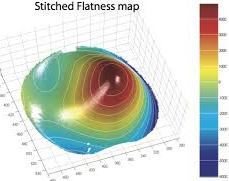PAM-XIAMEN provides InAs wafer ( Indium Arsenide ) to optoelectronics industry in diameter up to 2 inch .
InAs crystal is a compound formed by 6N pure In and As element and is grown by Liquid Encapsulated Czochralski ( LEC ) method with EPD < 15000 cm -3 . InAs crystal has high uniformity of electrical parameters and low defect density , suitable for MBE or MOCVD epitaxial growth .
We have "epi ready " InAs products with wide choice in exact or off orientation , low or high doped concentration and surface finish . Please contact us for more product information .

1)2”InAs
Type/Dopant:N/S
Orientation:[111B]±0.5°
Thickness:500±25um
Epi-Ready
SSP
2)2”InAs
Type/Dopant:N/Undoped
Orientation : (111)B
Thickness:500um±25um
SSP
3)2”InAs
Type/Dopant:N Un-doped
Orientation :A ±0.5°
Thickness:500um±25um
epi-ready
Ra<=0.5nm
Carrier Concentration(cm-3):1E16~3E16
Mobility(cm -2 ):>20000
EPD(cm -2 ):<15000
SSP
4)2”InAs
Type/Dopant:N/Undoped
Orientation :with [001]O.F.
Thickness:2mm
AS cut
5)2”InAs
Type/Dopant:N/P
Orientation :(100),
Carrier Concentration(cm-3):(5-10)E17,
Thickness:500 um
SSP
All wafers are offered with high quality epitaxy ready finishing. Surfaces are characterised by in-house, advanced optical metrology techniques which include Surfscan haze and particle monitoring, spectroscopic ellipsometry and grazing incidence interferometry
The influence of annealing temperature on the optical properties of surface electron accumulation layers in n-type (1 0 0) InAs wafers has been investigated by Raman spectroscopy. It exhibits that Raman peaks due to scattering by unscreened LO phonons disappear with increasing temperature, which indicates that the electron accumulation layer in InAs surface is eliminated by annealing. The involved mechanism was analyzed by X-ray photoelectron spectroscopy, X-ray diffraction and high-resolution transmission electron microscopy. The results show that amorphous In2O3 and As2O3 phases are formed at InAs surface during annealing and, meanwhile, a thin crystalline As layer at the interface between the oxidized layer and the wafer is also generated which leads to a decrease in thickness of the surface electron accumulation layer since As adatoms introduce acceptor type surface states.
Relative products:
InAs wafer
InSb wafer
InP wafer
GaAs wafer
GaSb wafer
GaP wafer
Source: semiconductorwafers.net
For more information, please visit our website:http://www.semiconductorwafers.net,
send us email at angel.ye@powerwaywafer.com or powerwaymaterial@gmail.com.
 Contact Information
Contact Information luna@powerwaywafer.com
luna@powerwaywafer.com powerwaymaterial@gmail.com
powerwaymaterial@gmail.com  +86-592-5601 404
+86-592-5601 404